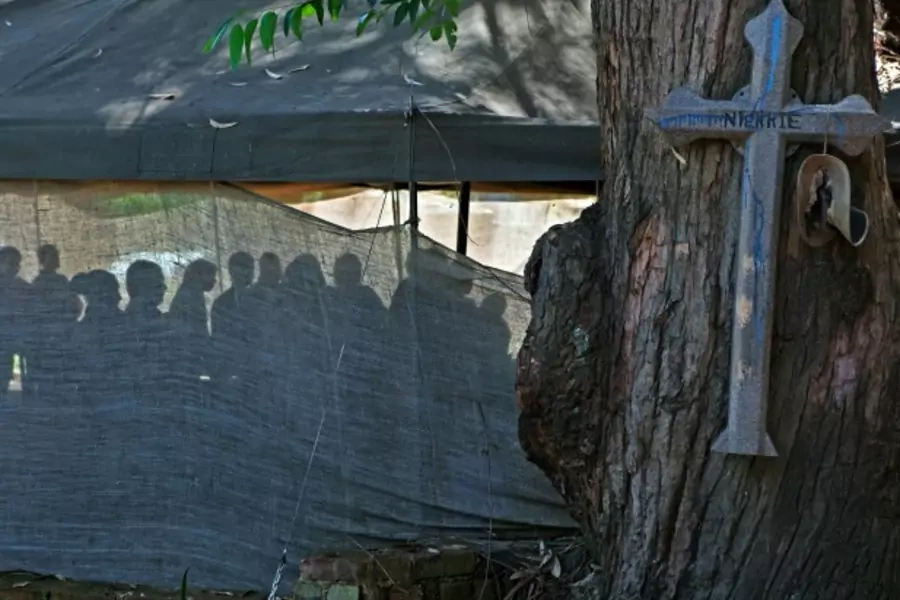More on:
South Africa is a notoriously divided nation. There are eleven legal languages and four races with degrees of legal recognition (Indian/Asian, Black, Coloured, and White). Though Black Africans are about 80 percent of the population, they are divided into numerous ethnic groups, of which the Zulus are the largest, about a quarter of the population. South Africans sometimes say that there is no “majority” or “minority” in the country, with an overall, encompassing national identity as Archbishop Desmond Tutu’s Rainbow Nation. Coloured’s are mostly Afrikaans speaking and Dutch Reformed in religion, but the ‘Cape Coloured’s” are a Muslim minority. Among Whites, the division is between Afrikaans speakers and English speakers, with the former the majority. White Afrikaners sometimes identify themselves as the “white tribe." The South African constitution recognizes the freedom of legal and cultural self-determination, including the possibility of establishing an ‘ethnic homeland.”
In terms of wealth, Whites have done better in post-apartheid South African than any other group, especially those that are English-speaking. White numbers have stabilized at just over 4.5 million (out of a total population of over fifty-four million), about the same as at the end of apartheid. White unemployment is dramatically lower than that of other racial groups; they are the racial group least likely to be the victims of crime. Social and economic statistics of Whites, both Afrikaner and “English,” are the best of any group. But the apartheid-era safety next for whites is gone. Because of this, there are now poor Afrikaner inhabitants of shanty towns.
As in Europe and perhaps in the United States, ethnic identification is strengthening among South Africans. For example, President Jacob Zuma strongly emphasizes his Zulu identity and seeks political support from African traditional rulers, while his predecessors Thabo Mbeki and Nelson Mandela chose not to emphasize their Xhosa heritage. Among some Afrikaans-speaking Whites there is concern that their unique culture is fading under the pressure of the overwhelming Black majority and globalization.
CNN carries a fascinating story about Orania, an Afrikaner response. CNN’s report is based on the work of Swedish journalist, Kajsa Norman, who is writing a book on the Afrikaners. Orania is an Afrikaner homeland restricted to Whites who are Afrikaans speaking and Afrikaner in culture. In effect, it is whites-only. Coloureds, who are usually Afrikaans speakers and Afrikaner in culture, are excluded. Orania is located on the edge of a desert in territory nobody else wanted. Its residents are embarked on building a new state-within-a-state based on self-imposed racial and cultural segregation. (As Norman notes, the Afrikaners in Orania have essentially created their own Bantustan.) CNN reports that its population is about 1,300 and is growing at the rate of 10 percent per year. The economy is based on agriculture, with unemployment at only 2 percent. As CNN reports, Orania is becoming something of a haven for Afrikaner down-and-outs, including recovering alcoholics and drug addicts, now that the apartheid state no longer exists. Some settle permanently, others come to dry out and then move on.
Since the seventeenth century, the Dutch settlers in South Africa who evolved into Afrikaners have often seen themselves as God’s chosen people, set aside from the rest of the population. This was a premise of the racial segregation that evolved into apartheid. Orania is, apparently, a return to that ideal. Orania is predicated on a vision of society that is far from the racially and ethnically integrated ideal of Nelson Mandela and the “Rainbow People of God.” It is easy to imagine that many of its residents are white supremacists. But, its emphasis on ethnic identify also recalls that of Jacob Zuma’s Zulu identity. Whites-only Orania is entirely legal under South African law, as was affirmed by a 2000 high court decision. Nelson Mandela and Jacob Zuma have both visited; CNN reports that some Orania residents feel that Zuma, with his strong Zulu identity, understands what motivates their separation.
More on:
 Online Store
Online Store
